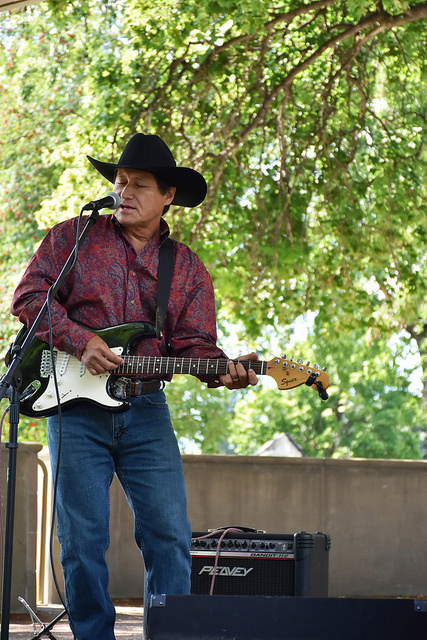EDITORIAL: Legal review reasonable on Baker City Council vacancy issue
Published 12:00 pm Wednesday, September 13, 2023
Baker City’s 71-year-old charter is admirably straightforward in some respects. But the document is murky enough to raise a reasonable question as to whether the city council, when it lacks a quorum of at least four members, as is the case now, can fill open seats.
Trending
This is the central issue in a debate that prompted Mayor Beverly Calder to cancel the council meeting Tuesday, Sept. 12. It also led to a lawsuit seeking to prohibit Calder and the two other current councilors, Ray Duman and Jason Spriet, from appointing any new councilors.
Dan Van Thiel, the city’s contract attorney, reviewed the matter and concluded on Tuesday that the charter does allow the three remaining councilors, despite lacking a quorum, to fill the four vacancies.
Later that day, however, Judge Matt Shirtcliff in Baker County Circuit Court granted the three plaintiffs in a lawsuit against the city council and Calder a temporary restraining order blocking the council from filling vacancies.
Trending
Given the lack of clarity, it’s reasonable that this matter will be decided in a courtroom.
Former councilors Nathan Hodgdon and Johnny Waggoner Sr. created this conundrum when they simultaneously resigned on Sept. 6. Their departure left the council one member short of a quorum.
Hodgdon contends that, lacking a quorum, the council has no choice but to call a special election, allowing city voters, not the remaining councilors, to fill the vacancies.
He cites both the city charter and a state law to bolster his argument.
The relevant parts of the city charter are Sections 17 and 20.
Section 17 reads, in part: “Four members of the council shall constitute a quorum to do business.”
Section 20 reads, in its entirety: “The concurrence of a majority of a quorum shall be required to determine any matter before the council.”
Hodgdon also points out that a state law — ORS 221.160 — deals with special elections to choose councilors in cities where the elected council lacks a quorum.
Section 1 of that law reads, in part: “Whenever because of death, resignation or other cause the number of the members of the governing body of any city is insufficient to constitute a quorum for the transaction of the business thereof, and the charter of such city does not otherwise provide, the mayor, or if there is no mayor, a majority of the remaining members of the governing body, may call a special election for the purpose of electing a sufficient number of persons to fill all the vacancies then existing in the governing body.”
The first part of that law applies to Baker City’s situation — the council lacks a quorum.
The second part does not — “and the charter of such city does not otherwise provide. …”
Baker City’s charter does provide a method for filling vacancies.
That’s Section 15, and it deals with that matter and no other.
It reads: “A vacancy in the council shall be filled by appointment by a majority of the council.”
Section 15 does not include the word “quorum.”
The semantic conflict here is obvious.
Two sections of the charter explicitly require a quorum of at least four councilors. And one, Section 20, mandates a quorum to decide “any matter before the council.”
Yet another section, which deals only with filling vacancies, does not even mention a quorum, using instead the phrase “by a majority of the council.”
Calder contends, and Van Thiel agreed, that the authors of the charter omitted “quorum” intentionally — that in that one situation, filling vacancies on the council, they purposely made an exception to the quorum requirement that applies to all other council actions.
This is a plausible interpretation.
Among the council’s duties, filling vacancies is one that could conceivably coincide with the council lacking a quorum. It is that very thing, after all — vacancies — which, in sufficient numbers, deprives the council of a quorum.
The drafters of the charter might well have concluded that, were the council ever lacking a quorum, it was sensible to allow the depleted council to fill the vacancies, the speediest way to regain a quorum and allow the council to resume doing business on the public’s behalf.
Conversely, the argument Hodgdon has proffered is also logical.
Why would the charter’s authors require that the council have a quorum to take all other actions — including such consequential tasks as adopting budgets, choosing city managers and passing ordinances — but allow councilors to fill vacancies even when they lack a quorum?
Even accounting for the generally shorter terms that appointed councilors serve compared with councilors who are elected by voters — which suggests the charter’s authors contemplated the difference between an appointed and an elected councilor and wanted to limit the guaranteed tenure of the former — Section 15’s silence on the quorum mandate is curious.
(Appointed councilors do have the same authorities as elected councilors, however.)
Having used the comprehensive phrase “any matters before the council” in Section 20, perhaps the charter’s authors didn’t feel it necessary to repeat the quorum requirement in another section even if they intended that the requirement apply.
Shirtcliff has scheduled a hearing on Sept. 21 in Circuit Court. The judge hasn’t decided whether to grant the plaintiffs an injunction that would continue to prevent the council from filling the four vacancies.
The lawsuit, however it plays out in court, will almost certainly guarantee that the city’s public safety fee will take effect Oct. 1. With the legal situation in limbo the council is unable, due to the lack of a quorum, to make changes to the fee based on citizens’ comments. There is no dispute that the charter prohibits the council from making such a decision without a quorum — the only unresolved issue is whether the council can fill vacancies while lacking a quorum.
The city had scheduled three public town halls, for Sept. 14, 19 and 21, to solicit public input about the fee. But those are on hold. Councilors couldn’t take any action based on what they heard anyway.
The fee, which the city can spend only for the police and fire departments, is $15 per month for residential water/sewer accounts, and $50 for commercial accounts.
Hodgdon has said he resigned because he believes with so many vacancies on the council, the voters should decide who fills those seats.
Yet by resigning and depriving the council of a quorum, he and Waggoner have all but ensured the council won’t be able to respond to widespread complaints from residents about the fee, which is the most regressive of the revenue-raising ideas councilors have discussed over the past several months.
Both Calder and Spriet voted against the resolution the council passed on Aug. 22 to impose the fee starting Oct. 1. Calder made the compelling argument that the council should have waited until it had heard from citizens during town halls. Hodgdon, who along with Waggoner voted for the resolution on Aug. 22, said then that council could “amend as necessary with the feedback we will receive.”
That’s still possible. But it won’t happen before the fee takes effect, regardless of what city residents, and voters, think about the matter.









